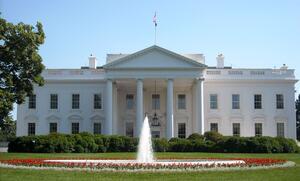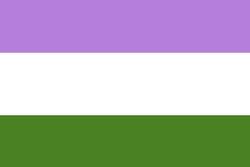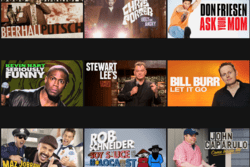Why I Fell in Love with The West Wing
The past two and a half years of my life, otherwise known as my time spent in high school, have been nothing if not busy. I’ve worked my hardest to not sacrifice the thing most important to any teen—sleep—but in order to do that, I’ve had to sacrifice other things. Specifically, I’ve had to sacrifice my TV watching. One show in particular, however, has managed to find its way onto my screen and into my heart. The West Wing is, in my opinion, one of the greatest TV shows of all time. It’s the perfect balance of seriousness and comedy, with enough storylines to keep you interested but not too many to get confused. It’s intellectual, but totally engaging. The characters are witty and lovable. I could go on about my love of The West Wing for hours. And I wouldn’t be done.
But let’s talk intersectionality. In conversation with my parents, I’ve found myself defending intersectionality as a value, and their questions are fair. Why should we be required to put the issues of everyone else before our own? Don’t we just end up spinning in circles in a quasi activist Olympics, with no one ever really reaching the finish line? It is impossible to fully account for the experiences of every person in the United States. And yet, it is the job of our government to protect the rights of every individual. This incredibly difficult paradox is struggled with in every episode of The West Wing. The characters’ work to juggle that paradox is what makes the show so extraordinary, and it’s why I connect to it so deeply.
I generally see myself as looking at the world through two main intersecting lenses; that of a Jew, and that of a Feminist. They are the cards I will always bring to the table. As such, a reason why I love the West Wing so much is because it feels like an honest representation of who I am. There isn’t any one character with whom I most strongly identify, but together, the staff of the West Wing seem to be working their hardest for the American people, and in that vein, for me. President Bartlett, Toby Ziegler, CJ Craig, Josh Lyman, Leo McGarry—all of them seem to be fighting for me and for what I believe in. Because although I approach everything with a Jewish, Feminist lens, I believe in many things that are classically thought to lie outside those two categories. But that’s the thing about intersectionality; my fervent belief that everyone needs access to a college education is a Jewish value, and it is a feminist value, as is my belief in equal access to healthcare for all. And so, as the characters debate the best way to implement such ideas, they’re arguing for an America that better represents me.
Intersectionality isn’t giving up on what is important to you. To me, intersectionality means understanding that your worldview can give positive nuance to issues, but it also means using others’ nuances to better one’s activism. What I learned from The West Wing is that in order for our country to function, our differences must be heard and accounted for. We have to know how important our own experiences are, and we have to know when to stop and listen to the experiences of others. Intersectionality means using our many textured lenses to make the world a better place.
This piece was written as part of JWA’s Rising Voices Fellowship.







